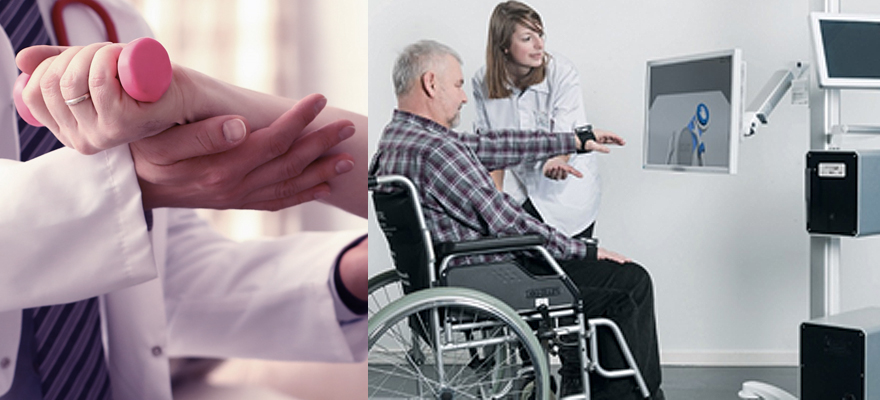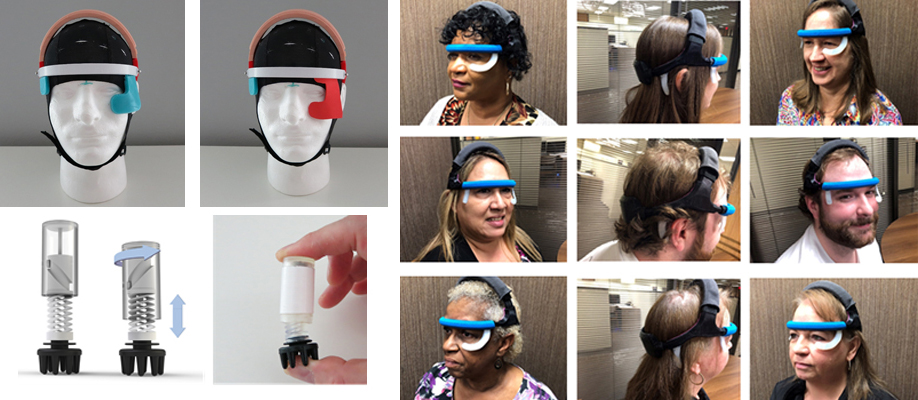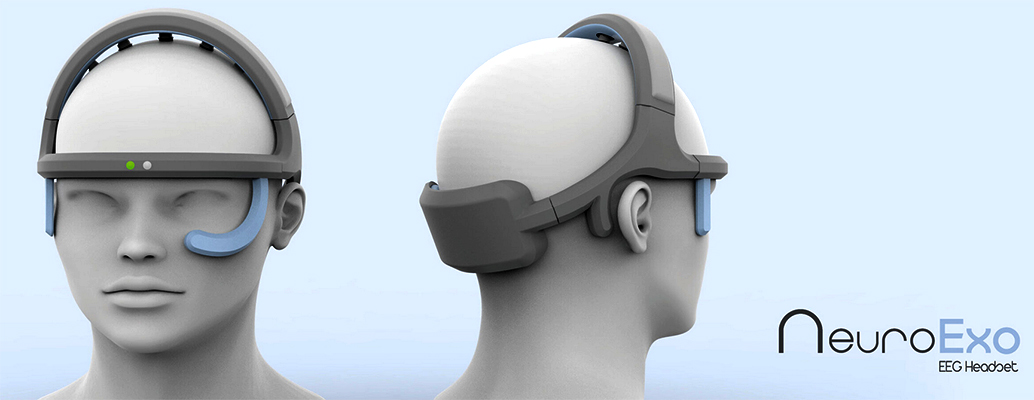NEUROEXO - A EEG HEADSET
Stroke is a leading cause of neurological disability in the United States with approximately 795,000 people suffer a stroke each year. 80% of stroke survivors suffer from upper-limb paresis. Paresis is a muscular weakness caused by nerve damage. Only 18% of these individuals gain full motor recovery with conventional treatments in the year following the stroke.
To recover from arm paralysis after stroke, the patient needs to stimulate their brain with passive exercise. Passive exercise means assisting the affected side through a movement, which helps the patient recover from paralysis. Although the patient is not “Doing it themselves”.
Passive movement helps WAKE UP THE ARM AND ACTIVATE NEUROPLASTICITY, the process that the brain uses to rewire itself. As the brain forms NEW NEURAL CONNECTIONS, the patient can slowly regain the use of their affected arm. Only 31% of stroke survivors receive outpatient rehabilitation. Physical therapy is difficult and expensive to access in the long term, causing many patients to eventually cease attending. Home-based rehabilitation programs are preferred but this requires help from a caregiver or partner.
NeuroExo is an EEG headset that can be used with any Upper-limb Rehabilitation Robot as part of an accessible, safe and effective at-home stroke rehabilitation system for long-term therapy. The EEG headset is adjustable to fit most adult head sizes and easy to place on the head using only one hand. The EEG sensors are integrated into the overhead bridge with a stable contact to the users’ scull through a patented mount design. Most EEG headbands use sticky sensors on the face. The skin on the face is very sensitive and after testing the sticky sensors, another way is explored to make sure the sensors make contact with the face without an adhesive.
The design was tested by a small group of users in terms of the overall fit and basic usablilities. The final design is refined to match the users' head and face profile in a high fidelity.


